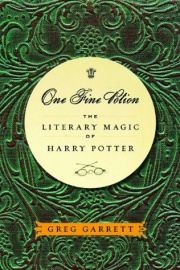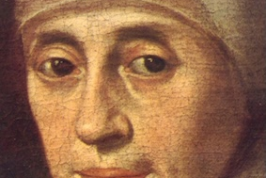Review: One Fine Potion: The Literary Magic of Harry Potter

One Fine Potion: The Literary Magic of Harry Potter by Greg Garrett (Waco: Baylor University Press; London: Darton, Longman and Todd, 2010), 160 pp, ISBN (DLT edition): 978 0 232 52839 8, £10.99
'The story Joanne Rowling wrote makes me want to be a better person', Garrett proclaims at the beginning of the book. His take on this major literary and filmic fantasy phenomenon of the last decade or so is an exploration of why this should be the case.
Garrett invites comparison between JK Rowling and JRR Tolkien or CS Lewis. For the Christian reader, perhaps the main implication of this is not whether her prose matches Tolkien's or Lewis's but whether her books can be read as guides to living in the same way as that of the famous Inklings. Garrett argues successfully that they can, applying the fourfold method of reading promoted by Thomas Aquinas and others.
The conservative religious and cultural backlash at the outset of the Harry Potter phenomenon denounced the books and films as promoting witchcraft. Garrett also notes that recently, in January 2008, Pope Benedict spoke out against the Harry Potter stories, describing them as dark mirror images of The Lord of the Rings and the Narnia stories. Yet others have commended the books for their strong moral values and the contrast they portray between good and evil.
Garrett argues that if we read magic as the defining element in the Potter stories, we risk misunderstanding them. Magic pervades the books, but they are about much more, and the notion that wizards are superior to Muggles (non-magic folk) actually mirrors the evil characters' most prejudiced ideas. It is the human joy of love and community that give Harry's life meaning and ultimately constitute his redemption.
The three Unforgivable Curses - which control, torture and kill, respectively - in Rowling's books are comparable to Tolkien's concept of the Machine, meaning a manifestation of magic that the powerful use to impose their will on others. Ultimately, magic in Potter's world is about the uses and abuses of power.
Harry's school, Hogwarts, is a community intended to develop character, and friendship and tolerance are key values in the story. How to develop empathy and deal with loneliness are lessons that Harry and his friends learn. And the books' portrayal of social and institutional evil is a masterstroke.
JK Rowling is an active member of the Church of Scotland and has talked about how her Christian faith informs the whole Harry Potter series. But she withheld this admission until after the final book had appeared. Like their author, the books are deliberately reticent about proclaiming Christian teaching. The themes may mirror those of the Christian tradition, but they are designed to appeal to a broad audience.
Despite dangers, at the end of things, all will be well. The Harry Potter books proclaim this belief, which Tolkien called eucatastrophe. Garrett's exposition of Rowling's achievement is lucid, well written and convincing.


















